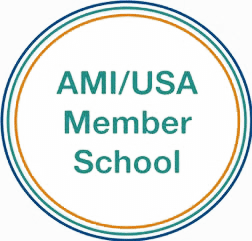At its core, education is about more than just memorizing facts, figures, and concepts. It’s about learning how to think about the world and incorporating new discoveries and perspectives into current beliefs and thinking patterns.
Montessori primary programs can be a catalyst in a child’s life for this sort of robust development, giving children the building blocks for evaluating problems, making wise decisions, and adjusting perspectives when necessary.
Discover four important ways Montessori education can support the cognitive development of primary-aged children and help them become agile critical thinkers who can adapt well in a fast-paced world.
1. Fostering Independence and Freedom
Montessori primary children engage in self-directed learning each day, having the full freedom to choose which activities they want to work on. This sort of independence helps students tap into their curiosity and explore the thoughts and questions swirling around in their minds.
Unlike what happens in highly structured traditional classrooms, Montessori students aren’t pushed into one way of thinking or doing things. Instead, they get to learn how to make their own decisions and learn how to solve problems through discovery self-correction rather than by asking someone else for the answer.
2. Practicing Practical Life Skills
In a Montessori primary program, children are given ample opportunity to engage in practical, real-world activities. These include learning to care for their own basic physical needs, cleaning up their classroom space, and even carrying materials from one place to another (and returning them to their proper place).
These practical life skills allow primary-aged children to work hands-on with materials they see every day. Doing so helps them build cognitive connections that transfer from one environment to the next and understand how to solve common problems they encounter in their lives.
They’ll have the tools to walk into a situation and understand what needs to be done, as well as the confidence to tackle those tasks head-on.
3. Encouraging Sensorial Exploration of the World
The Montessori primary curriculum also includes lots of sensory activities for students. Some of these may include playing with kinetic sand, baking or cooking, taking a nature walk, or exploring shakers filled with different objects.
These activities build critical thinking skills by helping children make predictions about the sensation they may experience based on what they know about a particular object (or a similar object).
They also heighten a child’s sense of wonder and creativity, allowing them to explore the world around them, draw conclusions about how things work, and incorporate new information when they make a discovery.
4. Leading With Open-Ended Questions
Traditional education models tend to be built on the idea of having students look to the teacher for answers to their questions. In the Montessori environment, guides are more likely to ask your child a question in response to their own questions rather than deliver a concrete answer.
These open-ended questions are perfect for fostering critical thinking skills because they help children work through problems on their own, thinking through the steps they need to take or hypothesizing answers.
This, in turn, builds the child’s foundation for scientific thinking and exploration and many other academic skills they’ll need as they progress through school.
Montessori Education Helps Children Build the Cognitive Skills They Need to Thrive
Undoubtedly, all children need to develop cognitive and critical thinking skills to become competent citizens of the world around them.
Critical thinking is what will help them be confident in solving complex problems, making wise decisions, communicating effectively, and helping others when needed. It’s also what will help them stay curious about the world, pushing them to ask questions and make new discoveries.
If this sounds like what you want for your child, consider taking advantage of the resources offered by a robust Montessori primary school. Contact us to learn more about how our primary-level curriculum can prepare your child to thrive, both now and well into the future.
